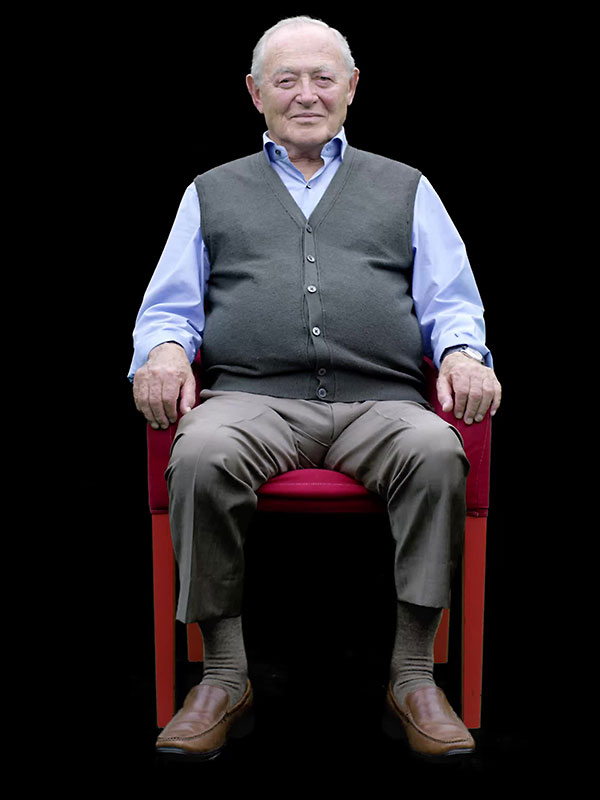Nimrod “Zigi” Ariav, 96, Took Up Arms Against the Nazis
The USC Shoah Foundation mourns the August 3, 2023 passing of Nimrod “Zigi” Ariav, a Holocaust survivor who fought in the 1944 Warsaw Uprising and Israel’s War of Independence before becoming a leader in the Israeli aeronautics industry. He was a longtime supporter of the POLIN Museum of the History of Polish Jews in Warsaw. He was 96.
In 2016, Zigi traveled from his home in Tel Aviv to Los Angeles to record the USC Shoah Foundation’s first Hebrew-language Dimensions in Testimony, an interactive biography where viewers ask genocide survivors questions and receive answers in real time.

Earlier in 2016 he recorded his video testimony for the Visual History Archive in English; it is now featured on the USC Shoah Foundation’s IWitness educational platform and used in classrooms around the world.
Zigi was born Szulem Czygielman in 1926 to a Reform Jewish family in Lublin, Poland.
He was 13 years old in 1939 when the German invasion brought persecution to the Jews of Lublin.
In his testimony, Zigi recalled being shoved off the sidewalk by a young Nazi while he was walking on Lubartowska Street in Lublin.
At that moment, he decided he was not going to have his identity decided by the Nazis. He tore off the white armband with the blue Star of David that he had been forced to wear.
In 1940 he left Lublin with his mother, father and twin brother Avraham and headed to his mother’s hometown of Bełżyce, where they hoped to be less conspicuous. There, without his armband, Zigi was able to get a job in an electrical plant and avoid slave labor.
In September of 1942, amid a Nazi action to send thousands of Jews from Bełżyce to the Majdanek and Sobibor death camps, Zigi’s parents devised a plan to split up the family in the hope that some of them would survive. While they avoided deportation, Zigi soon learned that his father had been murdered in a massacre, finding his body in a pool of blood in front of the Bełżyce synagogue. Zigi and his brother, along with some other young people, buried their father and some 150 others with their own hands.
Zigi’s mother decided that her sons would be safer in Warsaw. He and his brother boarded a train for the capital, posing as Polish refugees. His brother was discovered and murdered in 1943, and Zigi took on a new identity. Subsequently known as Jerzy Eugeniusz Godlewski, Zigi lived with Poles and joined the Polish Home Army to train as a resistance fighter. He was critically wounded in the Warsaw Uprising in the summer of 1944, when the Polish Home Army unsuccessfully attempted to defeat German troops before the Soviet army arrived to liberate the capital in January 1945.
After liberation and months of recovery in Krakow, Zigi learned that his mother had survived. He lived in a displaced persons camp for two years, and in 1947 he joined the Haganah, the Zionist paramilitary organization, training fellow survivors to fight while they were waiting to leave for Palestine.
Zigi immigrated to Israel in 1948, joining the war with neighboring Arab countries that followed Israel’s declaration of independence. He changed his name to Nimrod Ariav (affectionately known as Zigi to his friends) and served in the Israeli Air Force for seven years. He rose to the top ranks of Israel Aerospace Industries and later started his own civilian aircraft company with branches all over the world.
Zigi was married to Holocaust survivor Odette (Finkental) Ariav. They had two sons and three grandchildren.
May his memory be a blessing.